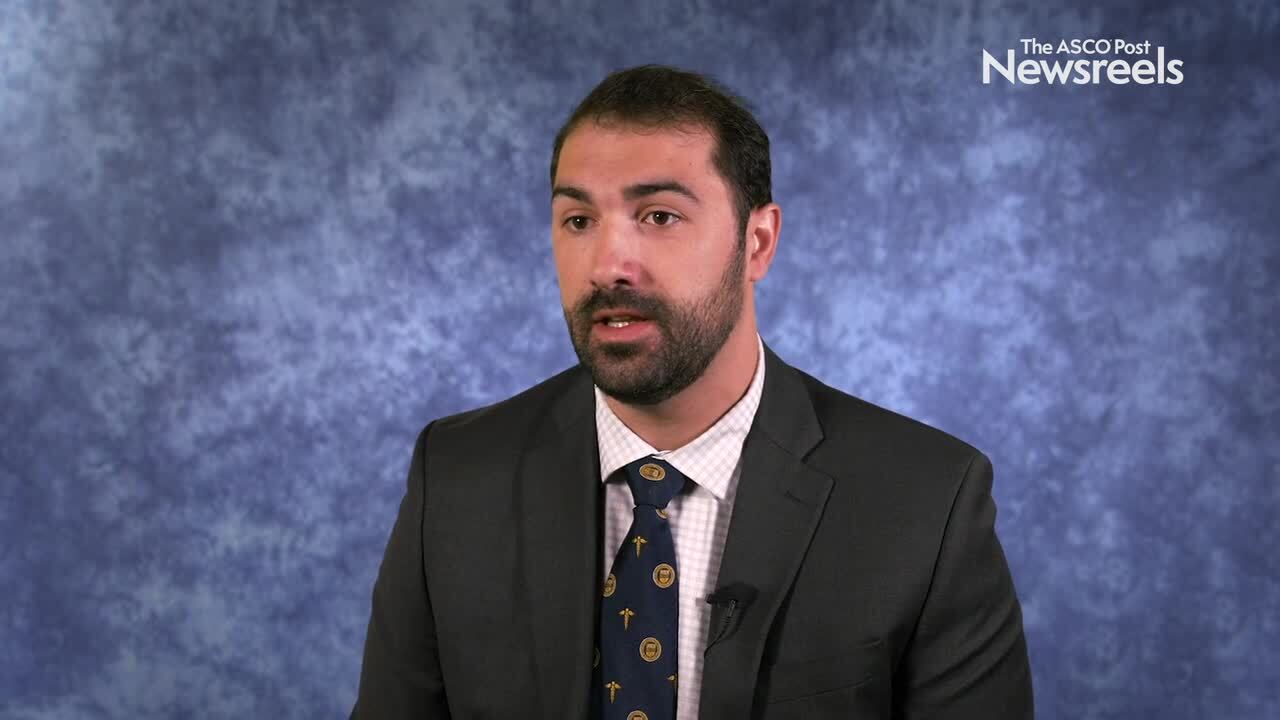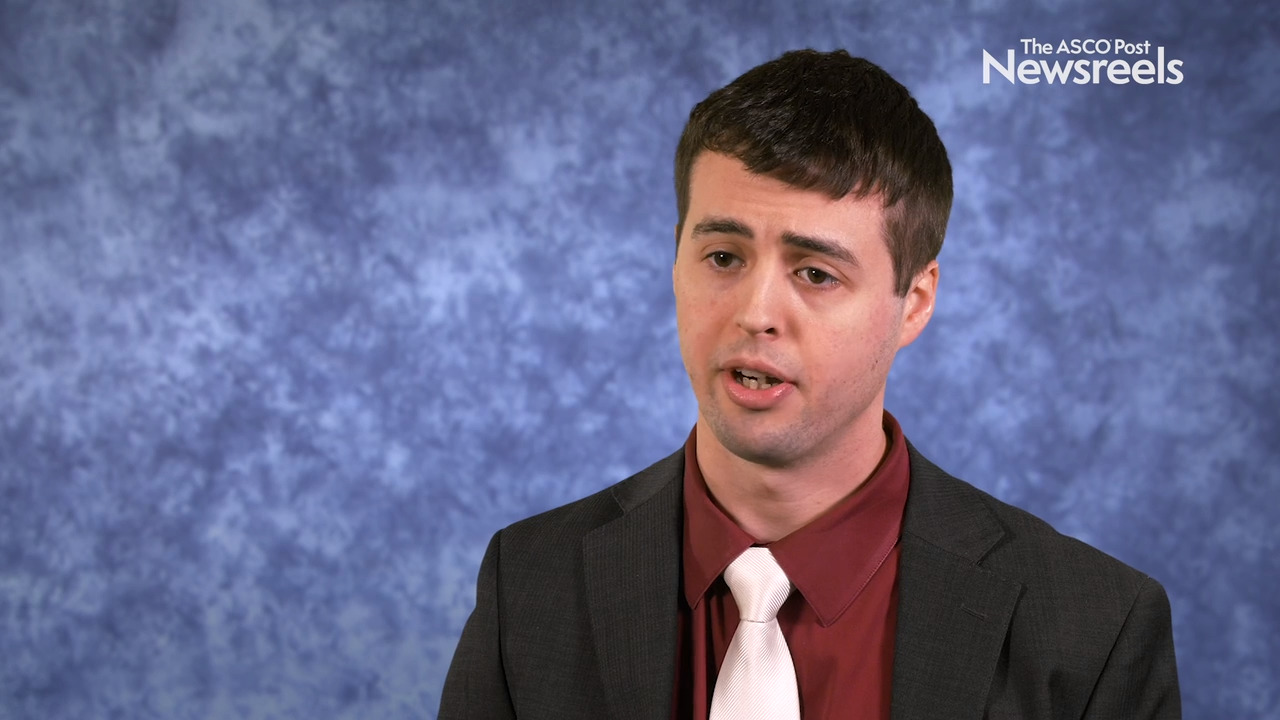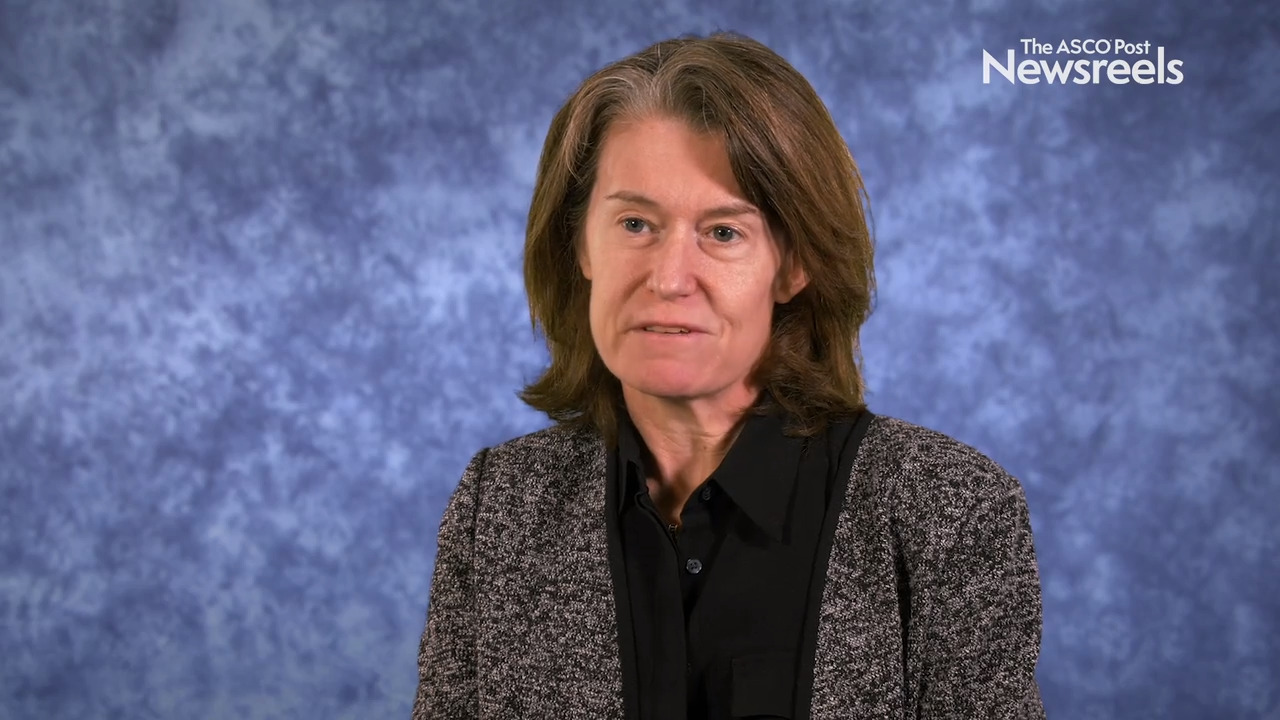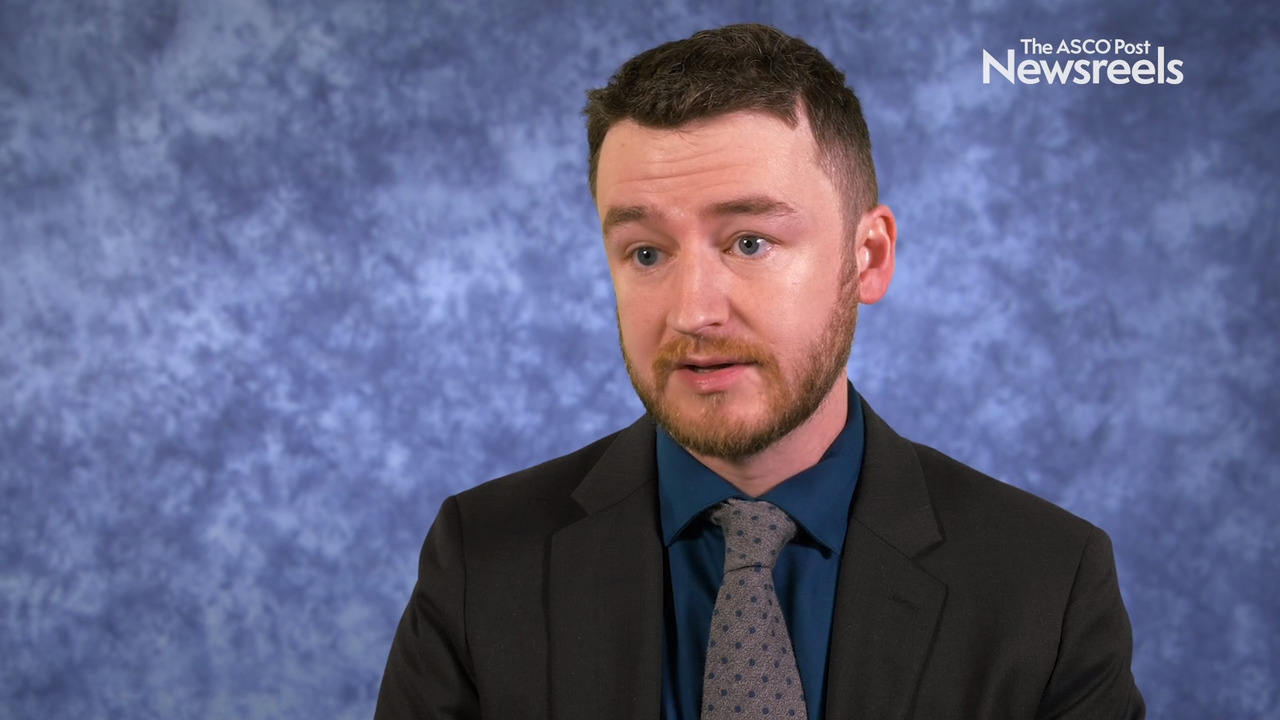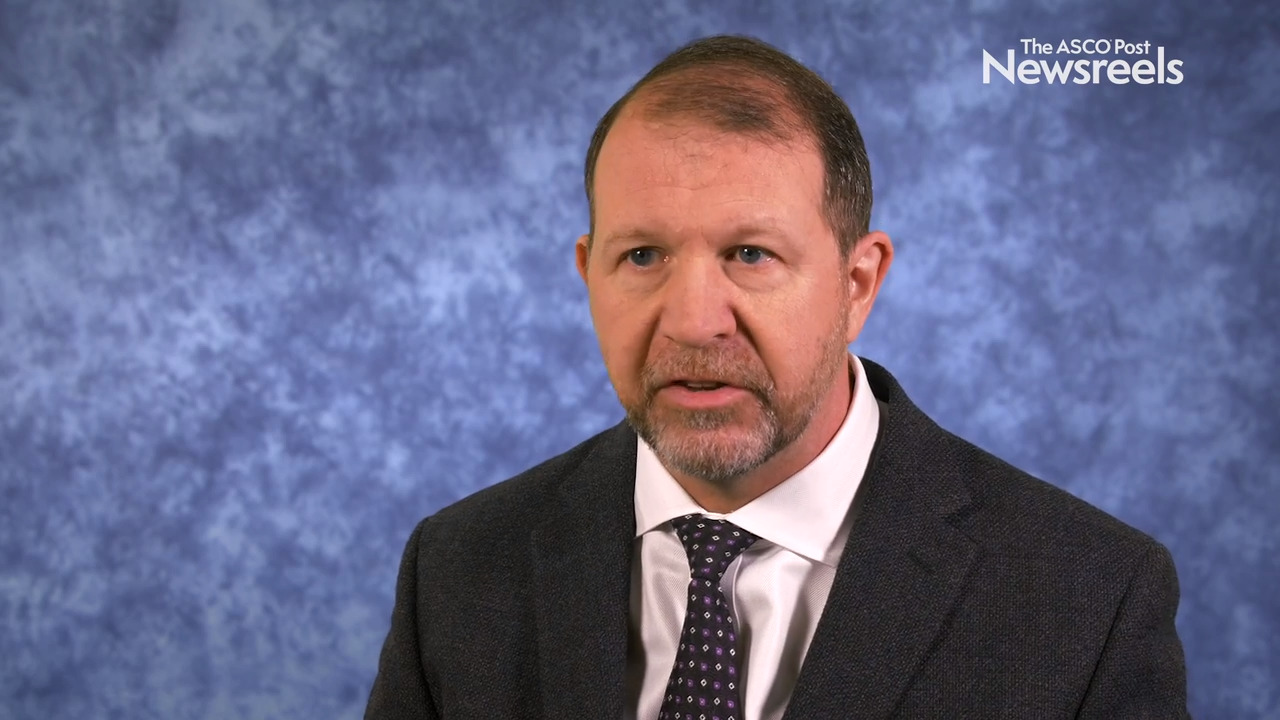Kevin Tyan on Colitis Induced by Immune Checkpoint Inhibitors: Potential Preventive Strategy
2020 ASCO-SITC Clinical Immuno-Oncology Symposium
Kevin Tyan, of Kinnos, and currently a medical school student at Harvard University, discusses his study findings, which showed that patients with melanoma who are treated with immunotherapy had a significantly lower risk of developing colitis if they also took vitamin D ( Abstract 89).
Luis I. Ruffolo, MD, of the University of Rochester, discusses preclinical studies showing that semaphorin 4D blockade may sensitize pancreatic tumors to chemoimmunotherapy combinations (Abstract 26).
Jarrett Failing, MD, of the Mayo Clinic, discusses his study data, which show some agreement between the expression of human leukocyte antigens in primary non–small cell lung cancer with brain metastasis. His findings may have some bearing on resistance to immune checkpoint inhibitors (Abstract 43).
Elizabeth A. Mittendorf, MD, PhD, of Dana-Farber Cancer Institute and Brigham and Women’s Hospital, summarizes a session she co-chaired on utilizing the immune system in neoadjuvant trials to treat melanoma, breast, and lung cancers.
Christopher B. Cole, MD, PhD, of the National Cancer Institute, discusses findings from a phase I study of intraperitoneal monocytes activated by interferons alpha and gamma in patients with ovarian cancer. Two of 11 patients had a partial response and 5 of 11 had stable disease; ongoing efforts are exploring more immune system targets in order to increase efficacy (Abstract 1).
Dario Vignali, PhD, of the University of Pittsburgh and UPMC Hillman Cancer Center, summarizes his Keynote Address, which covered what drives systemic immune dysfunction in patients with cancer, what promotes inhibitory receptor expression, and what limits the persistence of antigen-specific T cells.
